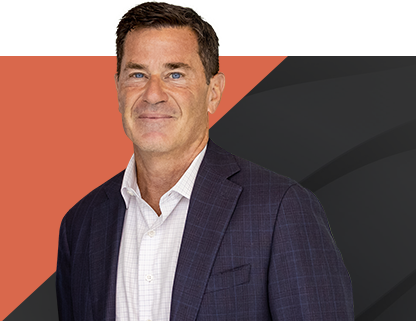Cannabidiol (CBD) is the most popular non-psychoactive compound obtained from the cannabis plant, famous for its powerful analgesic properties. As an analgesic drug, cannabidiol is often recommended for the treatment of both nociceptive and neuropathic pain.
And if recent findings are anything to go by, CBD might carry additional therapeutic benefits besides pain relief. The substance can help to treat or manage a wide spectrum of other medical conditions, including anxiety, nausea, epileptic seizures, to mention but a few. You can find hemp seeds for sale at your nearest dispensary.
Now, the past few years have seen a growing number of fitness buffs experimenting with CBD. But is CBD effective for workouts Lets find out.
Potential Health Benefits of CBD for Workouts
-
CBD alleviates workout-induced pain
Pain is the main side effect associated with workouts. Unless you only engage in low-energy forms of exercise, such as yoga, you are bound to experience a degree of pain after each workout.
Now, multiple anecdotal and scientific studies have confirmed that cannabidiol might relieve pain. CBD alleviates pain by interacting with the bodys pain receptors that are spread throughout the endocannabinoid system. And the best part is that the substance is effective against both nociceptive and neuropathic pain.
Nociceptive pain refers to the form of pain induced by physical injury or strain to muscles and joints. Common triggers include energy-intensive workouts and car accidents. On the other hand, neuropathic pain refers to the pain that affects the bodys nervous system. It often results from chronic illnesses, such as arthritis, multiple sclerosis, endometriosis, etc.
-
CBD reduces DOMS
Delayed onset of muscle soreness (DOMS) is a special kind of pain that sets in between 1 and 3 days after engaging in a rigorous exercise. DOMS is common among people who follow erratic workout routines. Although DOMS eventually disappears on its own, it could deal a massive blow to your workout schedule while it lasts.
Thankfully, the pain-relieving benefits of CBD can come in handy in reducing the severity of DOMS. CBD might also reduce DOMS by relieving muscle tension. As a muscle relaxant, CBD mimics the effects of conventional drugs like Valium. Of course, the substance offers an added benefit in that you won’t experience the common side effects associated with prescription muscle relaxants, such as sedation, confusion, and trembling.
Whats more, you can boost CBDs muscle-recovery benefits by pairing the compound with Selective Androgen Receptor Modulators (SARMs). SARMs are powerful drugs that deliver effects similar to those of testosterone. Remember to read more info on SARMS Canada before pairing the drug with CBD.
-
CBD alleviates inflammation
Initially, workout-induced inflammation was mostly managed by applying ice to the inflamed areas. But ice proved to be less effective as it delivered short-lasting benefits.
Then came non-steroidal anti-inflammatory drugs (NSAIDs). NSAIDs came with a cocktail of benefits, including managing inflammation, pain, fever, and blood clots. Unfortunately, most NSAIDs became infamous for their ability to trigger a host of unpleasant side effects.
If you are looking for an effective anti-inflammatory drug that induces minimal side effects, you should consider CBD. CBD relieves inflammation by reducing the levels and activity of pro-inflammatory cytokines. The substance also exerts its anti-inflammatory properties by inhibiting T cell proliferation, inducing T cell apoptosis, and increasing blood flow to the affected areas. Increased blood flow to the inflamed tissues helps to clear out the cellular debris as well as damaged proteins and by-products of muscle activity, such as lactic acid, from the sites.
-
CBD boosts your energy levels
You need adequate energy to carry out your workouts successfully. Much of that energy comes from the food that you eat. However, conditions like nausea might make it difficult to eat normally, thereby depriving your body of the much-required energy. And thats where cannabidiol comes in.
CBD, in conjunction with the primary psychoactive cannabis compound tetrahydrocannabinol (THC) , can clear the feelings of nausea, making it more comfortable to eat or take your regular workout supplements. When consumed, THC interacts with certain regions of the brain that control the bodys reward system.
That explains why recreational cannabis users tend to derive maximum pleasure from the activities that naturally make humans happy. Examples of such activities include working out, eating, traveling, and having sex.
On its part, CBD modulates the effects of THC, preventing risks of overdose.
-
CBD aids sleep
A good nights sleep increases daytime concentration, which translates to heightened productivity. Adequate sleep can also enhance your athletic performance as well as reduce the risks of depression and chronic illnesses like heart disease and obesity.
Sadly, millions of professional athletes and fitness buffs around the world grapple with various sleep disorders, such as insomnia. Luckily, this is one area where CBD might help immensely.
Cannabidiol aids sleep by shortening sleep latency. CBD is also associated with increased sleep duration. Another way CBD might aid your sleep is by reducing rapid eye movement (REM) sleep.
REM sleep is a period during sleep when much of the dreaming happens. During this period, people often experience nightmares, which could adversely affect their sleep duration. So, by reducing REM sleep, CBD subsequently reduces the number and intensity of your dreams, which translates to a longer and more peaceful sleep.
Evidently, there are numerous ways CBD might help to optimize your workouts. To get the most out of the compound, go slow on your doses.













